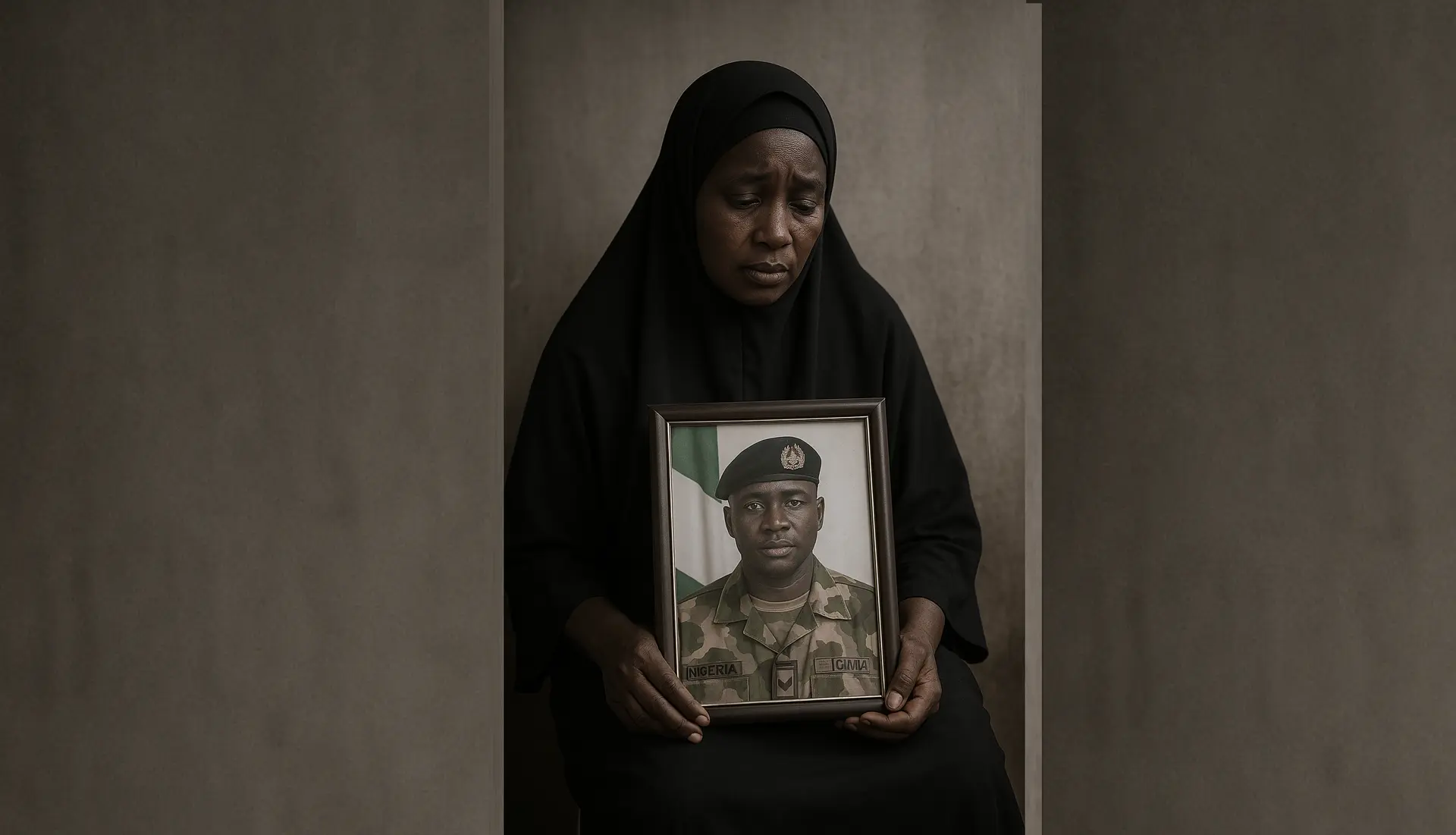When a Nigerian soldier dies in battle, the nation mourns. However, beyond the headlines and military funerals, a harsh reality exists—what happens to the families they leave behind?
Wives, children, parents, and siblings of fallen heroes are often left to navigate life without financial stability or adequate support. While Nigeria has fought several wars, from the Boko Haram insurgency to Niger Delta conflicts and peacekeeping missions abroad, the question remains: Do we truly support the families of those who gave their lives for the country?
The Heavy Burden of Sacrifice
In Nigeria, joining the military is seen as an honorable profession, with soldiers celebrated for their bravery. However, for the families of those who die in service, this honor often comes at a steep cost.
Many widows are left to raise their children alone, with no financial assistance, little guidance on claiming military benefits, and no clear path to stability.
A notable case is that of Bolajoko, a military widow featured in a 2021 Premium Times investigation. Her husband died in active service, and for nearly a decade, she struggled to access the benefits he earned. “It’s been nine years since my husband died,” she lamented, “and I still haven’t received the gratuity we were promised.”
What Benefits Are Promised to Families?
According to the Nigerian Armed Forces policy, the families of deceased soldiers are entitled to:
✔️ Death gratuity (one-time lump sum payment)
✔️ Pension benefits
✔️ Educational scholarships for children (via the Nigerian Army Welfare Scheme)
✔️ Housing support (in select cases)
Yet, many widows say these promises remain on paper only—never becoming reality.
Bureaucracy and the Struggle for Compensation
For many families, accessing military benefits is a frustrating, confusing, and often fruitless process.
A retired soldier, speaking anonymously, revealed:
“Once a soldier dies, the unit moves on. Unless the family fights hard, they may never get anything. And even when they push, they hit brick walls.”
Some families report that funds meant for them are delayed or mismanaged, leaving them without financial security.
🔗 EXPLORE: Why the Nigerian military hasn’t defeated Boko Haram in 16 years
The Boko Haram War: A Generation of Widows and Orphans
Since 2009, Boko Haram’s insurgency has led to over 350,000 deaths, including thousands of soldiers. While the Fallen Heroes Support Fund was set up in 2018 to assist widows and orphans, many families say the support is inconsistent or nonexistent.
During the 2020 burial of 23 soldiers in Maiduguri, the Chief of Army Staff promised to “take care of the families.” However, months later, many widows reported they had received no financial support beyond the funeral.
For some families, the greatest pain isn’t just financial hardship—it’s a lack of closure. Some soldiers’ bodies are never recovered, leaving loved ones in permanent uncertainty.
Nigeria Must Do Better for Its Fallen Heroes
The Nigerian government and military must overhaul how they support the families of fallen soldiers. These men and women died protecting the nation—the least Nigeria can do is ensure their loved ones are not forgotten.
🔹 A central database of fallen soldiers and their families
🔹 Direct financial support to widows and orphans
🔹 Legal assistance to help families access benefits
🔹 Mental health and trauma support for grieving relatives
As Nigerians, we must ask ourselves: Do we truly honor our heroes if their families are left to suffer?
“A country that cannot protect the memory of its heroes is not worthy of their sacrifice.”
Until Nigeria fixes this broken system, many will continue to die for a nation that forgets them too soon.






















